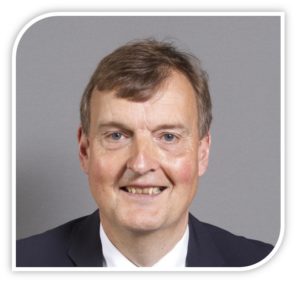
CCN Latest News, CCN News 2018 | 25 January 2018

Shortly before Christmas, the Secretary of State for Local Government announced that councils would be able to add a further 1% to council tax to offset continuing reductions in core government funding.
However, in its settlement consultation response, the County Councils Network (CCN) says this will raise just £105m compared to the £1bn reduction in budgets by 2020 for the 37 county councils in the country, which serve some 26 million people and 86% of England.
Download the response here.
County leaders say this shortfall will lead to them having to make ‘unpalatable’ decisions unless their government rethinks its funding allocations to local authorities. They warn that bus services, children’s centres, and libraries will have to be cut, new charges will be introduced for social care services, whilst there will be less money for road maintenance and pothole repairs.
These county leaders say their councils and residents, who are predominately are being unfairly penalised, as they will see their core funding reduced by almost half (43%) by 2020.
Without additional funding, they will have little choice but to raise council tax next year to make up some of the shortfall. However, while the majority are likely to add on the extra 1%, they are reluctant to do so and argue it will further entrench funding and council tax inequalities across rural shire counties.
Due to continuing cuts and what CCN call an ‘outdated and unfair’ funding system, residents in counties will receive just £161 of core funding per head by the end of the decade compared to an England average of £266.
As a result, county authorities have had to raise council tax to make up the shortfall. The average Band D property bill in 2017/18 is £1,662 in county areas, £132 higher than the national average.
Council leaders are now actively lobbying their local MPs in the lead up to Parliamentary vote on the final local government settlement, arguing for an extension of ‘transitional funding’. This £300m two-year funding package for all councils was introduced in February 2016 by then Communities Secretary, Greg Clark, to prevent a backbench rebellion by rural MPs.
CCN argues that extending this funding for the next two years could prevent the widespread closure of frontline services and non-statutory services and help limit the level of council tax rises in counties.
It would also help fulfil Ministers’ promises to smooth the transitional to a new ‘fairer’ funding formula. Reforms to overhaul the way councils are funded have been delayed since they were announced in 2016 and will now not come into force until 2020/21 at the earliest.

Cllr Paul Carter, Chairman of the County Councils Network, said:
“Over the past seven years shire counties have faced the toughest financial challenge of all, with rising demand for services meaning we already face a £2.54bn funding black hole in 2020/21. This comes on top of being the lowest funded councils.
“The ending of essential grants this year for frontline and life-critical services means we are facing some truly unpalatable budget decisions, which will see rural bus subsidises all but end, new charges for care services, children’s centres and libraries disappear and potholes go unfilled.
“Even if counties raise council tax under these new freedoms, it won’t prevent many of these service reductions taking place. Residents in rural counties will be asking why they are paying so much more in council tax than anyone else but receiving so much less.
“Two years ago we faced a similar situation, and the government listened to our concerns and introduced transitional grants. I hope Ministers in Whitehall see sense and provide Sajid Javid with the resources he needs to extend this help and prevent unfair cuts and council tax rises in our county heartlands.”
© 2024 County Councils Network | Credits | Site map | Cookies | Privacy Policy.